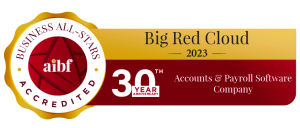The cloud has been around for decades, providing a network of third-party computing storage and resource uses for both the public and business industry. It is one of the most talked about computing environments as people either sing their praises of the capabilities of the cloud or whisper their mistrust and confusion of how to properly implement it into their operations. With all of these conflicting opinions, several myths about the security of cloud-based infrastructures have appeared that increases the confusion and leads to businesses being wary about fully adopting the cloud. Let’s debunk some of the more common misconceptions concerning cloud security.
Four myths about cloud security
Myth #1: The cloud is not secure.
What stops most businesses from adopting cloud security is that they believe the cloud simply is not secure. Basically, if the data is not located on the premises, there is too much risk in having hackers infiltrate and capture data in the cloud. This is the top myth that CEOs and IT professionals still believe.
Yet the truth is that if the cloud was not secure, cloud providers would be out of a job. These providers go through extreme measures to make their cloud environments secure and to thoroughly audit their security controls. The truth is that there are less security breaches in the public cloud than there are in the PCs in your own office and/or home.
Myth #2: You lose control of your data in the cloud.
It is your data. You control what data enters the cloud, how it is used, and where that data travels — especially if you run a company that has employees on the road. Working with your cloud provider offers you more transparency over data use and transmission, allowing you to maintain control of the data even when it is not stored directly in your company’s servers.
Myth #3: Employees have the company’s best interests in mind when using the Internet.
Shadow IT is a security risk that small businesses need to recognise and address. To become more efficient and productive with their tasks, employees are using their own cloud providers, apps and mobile devices without the consent of IT technicians or the business owner. Unfortunately, these employees may be visiting sites that are rogue cloud services with dismal or non-existent security measures, leaving business data open to hackers. Developing and implementing cloud security policies has to become a top priority to control who has access to the data when your employees are adopting shadow IT.
Check out our post on BYOD and its implications for small businesses.
Myth #4: Cloud providers offer the best security so you don’t have to worry about data breaches.
It is true that cloud providers have teams of security technicians on hand to design, implement and maintain data security controls. Yet it doesn’t let you off the hook in having a solid security plan and policy in your small business. Having encryption keys, password policies, database security management and staff training are just some of the responsibilities that fall upon you the moment you decide to open a small business.
Sifting through the facts and myths about cloud security is essential so small business owners can understand how this infrastructure operates. Obtain the information you need to make smart business decisions regarding the computing capabilities of the cloud. Then implement the needed data security to help mitigate risks.
Most companies will have a hybrid of services – some in the cloud and come on premise. The post above makes it clear that cloud security is very good but when it comes to your on-premise data security make sure you have a backup plan in place.




